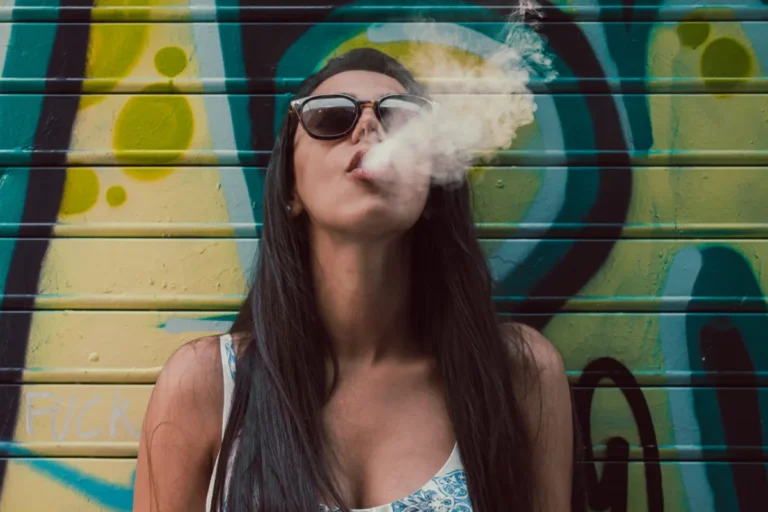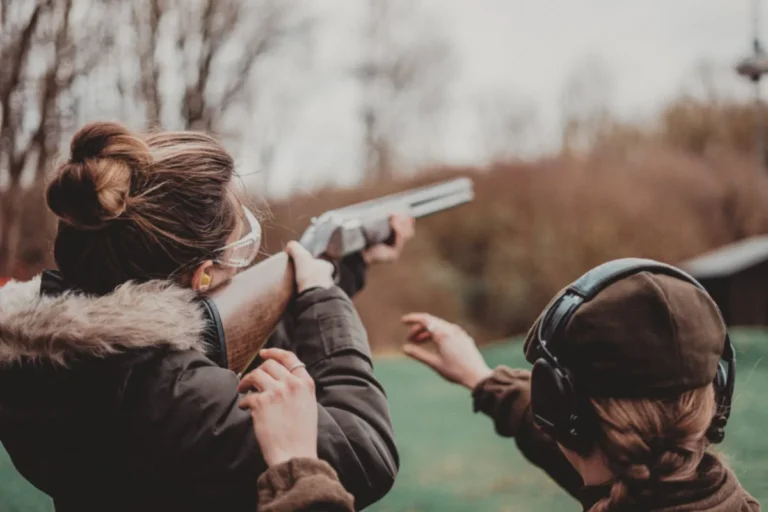
Texans must be at least 21 years of age to consume alcohol. With limited exceptions, minors are prohibited from possessing and consuming alcohol in Texas. Minors in violation of Texas alcohol laws face severe consequences from incarceration to the stain of a permanent criminal record.
TOP 10 THINGS TO KNOW IF YOU’RE A MINOR CHARGED WITH AN ALCOHOL CRIME
1) DUI OR DWI?
A minor who operates a motor vehicle after drinking can face 2 different offenses, DUI or DWI depending on the circumstances and alcohol content. Minors and ONLY minors are subject to DUI charges if they have any detectable amount of alcohol in their system. This is because Texas law prohibits alcohol for minors so even the smallest detectable consumption will result in a DUI, a class C misdemeanor punishable by a $500 fine, community service, and Alcohol Awareness. A minor is also subject to DWI if they operate the vehicle while intoxicated, defined as having a 0.08 Blood Alcohol Concentration or greater, or having lost normal physical or mental faculties. DWI is normally a class B misdemeanor with a maximum 6 month jail sentence and $3,000 fine, but it is enhanceable in certain circumstances.
2) UNDERAGE DRINKING CRIMES CAN BE ENHANCED!
Most underage drinking laws are punishable as class C misdemeanors carrying a maximum $500 fine. However, minor Defendants with two or more prior underage drinking convictions are subject to an enhanced maximum fine of $2,000 and a 6 month jail sentence.
3) UNDERAGE DRINKING CONVICTIONS REQUIRE A DRIVER’S LICENSE SUSPENSION
Texas requires a driver’s license suspension upon a conviction for underage drinking laws, including MIP and MIC. A first conviction carries a 30 day suspension, a second offense requires a 60 day suspension, and any subsequent convictions impose a 180 day driver’s license suspension with the Texas Department of Public Safety.
4) MINORS CAN LEGALLY DRINK ALCOHOL WITH THEIR PARENTS!
Yes, minors can legally drink alcohol in Texas if they are in the visible presence of an adult parent, legal guardian, or adult spouse. This is an exception to Texas alcohol laws.
5) JUVENILE UNTIL AGE 17, MINOR UNTIL AGE 21
Texas law classifies a youth between the ages of 10 and 17 as a child and subjects them to the juvenile justice system. Once an individual turns 17, they can be prosecuted for crimes as adults, even though they are still considered minors for purposes of Texas underage drinking restrictions.
6) JUVENILE CASES CAN BE USED TO ENHANCE UNDERAGE DRINKING CHARGES
All underage drinking convictions can be used for enhancement purposes, including those processed through the juvenile justice system. For example, a minor with two prior juvenile underage drinking convictions is subject to an enhanced underage drinking charge upon any subsequent violation. An enhanced charge carries a maximum $2,000 fine and up to 6 months jail.
7) TEXAS PRIORITIZES ENFORCEMENT OF UNDERAGE DRINKING LAWS
Texas has strict policies against underage drinking. As a consequence, police liberally issue citations even when the evidence of a violation is weak. Courts, judges, and prosecutors are also unapologetic as enforcement of these restrictions are considered a youth public safety concern. It is therefore relatively easy for a minor to be cited and prosecuted for underage drinking in Texas.
8) POSSESSION DOES NOT NECESSARILY MEAN ACTUAL PHYSICAL POSSESSION
Legally, possession does not require a minor to physically possess an alcoholic beverage in their hand. A minor can be in possession of an alcoholic beverage if it sits on a table in front of them. Consequently, more than one minor can be in possession of a single alcoholic beverage and subject to an MIP citation.
9) USING A FAKE ID CAN LEAD TO MORE SEVERE CHARGES
While underage drinking alone is usually punishable as a fine-only offense, minors who present a fake ID are subject to more severe charges under the Texas Penal Code. Depending on the circumstances, the use of a fake ID can lead to felony prosecution for Fraudulent Use or Possession of Identifying Information, Forgery, or Tampering with Governmental Record. These offenses are punishable at state jail felony levels at the very least.
10) A SKILLED LAWYER CAN MITIGATE AND PREVENT MANY OF THESE CONSEQUENCES
Texas underage drinking violations carry severe consequences like permanent criminal convictions and driver’s license suspensions. However, an experienced lawyer can review the evidence, identify weaknesses, and leverage an effective defense to secure a reduction, deferral, or dismissal of underage alcohol offenses. This means a minor defendant can avoid the most punitive repercussions of an underage drinking violation in Texas.
THREE BIG CONSEQUENCES OF UNDERAGE DRINKING CHARGES:
1) A CRIMINAL RECORD
Perhaps the most severe potential consequence of an underage drinking charge is a permanent criminal record. While the majority of these offenses are punishable by a $500 fine, they can result in a permanent conviction if not resolved properly. Dismissed charges also remain indefinitely on criminal records unless they are expunged. The only way to delete an underage drinking record in Texas is by Expunction.
2) A DRIVER’S LICENSE SUSPENSION
Underage drinking offenses can also result in lengthy driver’s license suspensions. For example, a first conviction carries a 30 day driver’s license suspension while a second offense is subject to a 60 day suspension. Minor’s with 2 or more prior convictions face a driver’s license suspension of 180 days.
3) ALCOHOL AWARENESS AND SUBSTANCE ABUSE COUNSELING
Underage drinking offenses are also subject to Alcohol Awareness classes and even substance abuse counseling in certain circumstances. Student minors are often required to complete additional substance abuse counseling as part of collegiate academic discipline for alcohol related violations. These requirements often interfere with classwork and work responsibilities for Texas youth.
ALCOHOL CRIMES FOR MINORS FAQ’S:
WHAT HAPPENS IF A MINOR IS CAUGHT WITH ALCOHOL IN TEXAS?
A minor who is caught with alcohol is subject to citation, arrest, and criminal prosecution for a number of serious offenses including Possession of Alcohol by a Minor (MIP), Consumption of Alcohol by a Minor (MIC), Public Intoxication, and even DUI, DWI, or Open Container depending on the circumstances. These charges can devastate a minor’s college, professional, and even military prospects. A minor facing an alcohol-related case should contact an experienced Texas lawyer who can build an effective defense and secure a reduction or a dismissal of all charges.
- Is Public Intoxication of a minor in Texas? Yes, a minor in Texas can be arrested for Public Intoxication if they appear in public while intoxicated to the extent they endanger themselves or others. Public Intoxication is a severe class C misdemeanor subject to a maximum $500 fine, community service, and a permanent criminal conviction in certain cases. Police are known to aggressively enforce zero-tolerance alcohol laws with minors and will make an arrest upon the slightest provocation.
- Is an MIP or MIC worse in Texas? Possession of Alcohol by a Minor (MIP) and Consumption of Alcohol (MIC) are both punishable as class C misdemeanors with a maximum $500 fine, community service, Alcohol Awareness classes, and a permanent conviction and driver’s license suspension in some cases. However, minors with 2 or more prior convictions are subject to an enhanced punishment of a maximum $2000 fine and 6 months jail. An experienced MIP and MIC defense can help a Texas minor avoid the most severe of these consequences.
HOW LONG DOES A MINOR IN POSSESSION STAY ON YOUR RECORD IN TEXAS?
An MIP can remain permanently on a Texas criminal record even when dismissed. This can be devastating for Texas youth as they seek to embark on their educational and professional careers. The only way to remove an eligible MIP record in Texas is by Expunction. Expunction is a powerful legal tool that deletes all records of qualifying criminal cases.
- What is the first offense for MIP in Texas? A first-offense MIP in Texas is punishable as a class C misdemeanor with a maximum $500 fine, community service, an Alcohol Awareness program, and a permanent conviction and driver’s license suspension in certain circumstances. However, a person with 2 prior convictions is subject to a maximum 6 month jail sentence and $2000 fine.
- Does your juvenile record go away at 18 in Texas? In Texas, a person is no longer a juvenile at 17 years of age. However, a juvenile record does not automatically go away at this age. Certain juvenile records are automatically sealed if they were not referred for delinquent conduct or were not adjudicated. Texas law also automatically seals misdemeanor delinquent conduct adjudications. Felonies do not automatically seal but a person may file an application to seal their records if they meet certain criteria.
WHAT DOES ZERO TOLERANCE MEAN IN TEXAS?
Zero tolerance is a policy where consumption and possession of alcohol by minors is prohibited in Texas. A minor who consumes or possesses alcohol is subject to citation, arrest, and criminal prosecution for a number of offenses. However, a minor may legally possess or consume alcohol if accompanied by an adult parent, legal guardian, or adult spouse in Texas.
- Is a minor in possession a misdemeanor in Texas? Yes, Possession of Alcohol by a Minor is a serious class C misdemeanor in Texas. This offense is punishable by a maximum $500 fine, community service, Alcohol Awareness and a criminal conviction and driver’s license suspension in some cases. Minors with 2 prior convictions are even subject to an enhanced maximum fine of $2,000 and up to a 6-month jail sentence.
- Can minors sit at a bar in Texas? Yes, a minor in Texas can sit at a bar and even consume alcohol if permitted by the bar and accompanied by a parent, legal guardian, or adult spouse. However, many bars, as private enterprises, prohibit minors from entry as a general policy or liability concern. Minors are subject to Criminal Trespass charges if they refuse to leave such establishments when asked.
WHAT IS THE DIFFERENCE BETWEEN MIP AND MIC IN TEXAS?
The term MIP refers to the offense Possession of Alcohol by a Minor that occurs when a minor is in the care, custody, or control of an alcoholic beverage regardless of whether the minor consumes the beverage. MIC refers to the offense Consumption of Alcohol by a Minor that occurs when a minor consumes or has consumed alcohol regardless if there is any alcoholic beverage remaining in their possession. Both offenses are class C misdemeanors punishable by a maximum $500 fine, community service, an Alcohol Awareness program, and a permanent conviction and driver’s license suspension in certain circumstances.
- What is a class C misdemeanor for a minor in Texas? Class C misdemeanor is a classification of certain criminal offenses in Texas. A minor who commits a class C misdemeanor is subject to arrest, a maximum $500 fine, and court ordered requirements like community service hours and drug and alcohol counseling. A class C misdemeanor can devastate college and employment aspirations for young Texans and therefore merits the care and attention of an experienced Texas misdemeanor attorney.
- Is .02 alcohol level high? A 0.02 BAC is high enough to subject a minor to Consumption of Alcohol by a Minor or Driving Under the Influence (DUI) charges if operating a motor vehicle. These cases can result in devastating consequences including arrest, a permanent criminal conviction, and a driver’s license suspension in some instances.
WHICH IS A CONSEQUENCE FOR THE OFFENSE CALLED MINOR IN POSSESSION?
Possession of Alcohol by a Minor carries a maximum $500 fine, community service, and completion of an Alcohol Awareness program. This charge is subject to arrest and can also result in a permanent criminal conviction and driver’s license suspension. Additionally, certain repeat offenders are subject to a maximum $2,000 fine and 6-month jail sentence.
- Is underage drinking a serious crime? Yes, Texas law imposes severe consequences for underage drinking, including driver’s license suspension, Alcohol Awareness, and costly fines. Police officers aggressively enforce these laws on college campuses and around the state. Prosecutors and court officials are also stringnet in the adjudication of these offenses. Young Texans facing underage drinking charges should consult an experienced Texas attorney as these offenses can devastate college and employment prospects.
- What crimes are related to alcohol? There are many crimes pertaining to alcohol and minors in Texas. These include, but are not limited to Possession of Alcohol by a Minor (MIP), Consumption of Alcohol by a Minor (MIC), Public Intoxication, Open Container, DUI, DWI, and Misrepresentation of Age by a Minor. These offenses carry significant punishments, including thousands of dollars in fines, community service hours, alcohol monitoring by ignition interlock device, and lengthy jail sentences in some cases.
WHAT HAPPENS IF YOU DRINK ALCOHOL WHEN YOUR A MINOR?
A minor who drinks alcohol is subject to arrest and prosecution for a variety of different criminal offenses including MIP, MIC, and Driving Under the Influence (DUI) if operating a motor vehicle. These charges can result in a permanent conviction, which may mar a young person’s college and career prospects. Even dismissed charges remain permanently on criminal records in Texas unless expunged.
- What is underaged drinking? Underaged drinking occurs when a person younger than 21 years old consumes an alcoholic beverage. This is a criminal offense leading to a variety of different charges in Texas. Underage drinking suspects should speak and interact with law enforcement as little as possible so as to preserve important legal defenses.
- What if a 14 year old drinks alcohol? It is illegal for a 14 year old to drink alcohol. This offense is typically punishable in Texas as Consumption of Alcohol by a Minor (MIC), a class C misdemeanor with a maximum $500 fine, community service, and completion of an Alcohol Awareness program.
WHAT IS THE LEGAL AGE IN TEXAS?
The legal drinking age in Texas is 21 years old. A minor who consumes alcohol is subject to a variety of different charges including MIP, MIC, DUI and even DWI depending on the circumstances. However, it is legal for a minor to consume alcohol if accompanied by a parent, legal guardian, or adult spouse.
- What is a minor in Texas? For purposes of the Texas Alcoholic Beverage Commission, a minor means a person under 21 years of age. A minor who consumes alcohol in Texas is subject to prosecution under a variety of Texas criminal laws.
- What happens if a minor is in possession of alcohol in Texas? A minor who is in possession of alcohol is subject to criminal charges. The offense Possession of Alcohol by a Minor (MIP) is a class C misdemeanor subject to a maximum $500 fine, community service, Alcohol Awareness and a criminal conviction and driver’s license suspension in certain circumstances. A minor with 2 or more prior MIP convictions is subject to an enhanced fine of $2,000 and a maximum 6 months of jail time.
WHO IS CONSIDERED A MINOR UNDER THE TEXAS ALCOHOLIC?
A person under 21 years of age is considered a minor according to the Texas Alcoholic Beverage Commission. It is illegal for a minor to possess and consume alcohol in Texas.
- How long does a MIP stay on your record in Texas? An MIP can stay permanently on someone’s criminal record in Texas. Even a dismissed MIP can appear permanently on criminal records in Texas unless it is expunged. The only way to clear an MIP record in Texas is by expungement.
- How do I get out of a MIP in Texas? The best way to beat an MIP in Texas is by securing the assistance of an experienced MIP lawyer. An MIP lawyer can assess the strength of the prosecution evidence, build an effective defense, and arrange for resolution without convictionor a dismissal.
IS MIP PERMANENT ON RECORD?
Yes, an MIP can remain permanently on someone’s criminal record in Texas even when dismissed. The only way to clear an eligible MIP record in Texas is by Expunction.
- What is the penalty for MIC in Texas? The penalty for MIC in Texas is a maximum $500 fine, community service, an Alcohol Awareness program, and a criminal conviction with a driver’s license revocation in certain circumstances. An effective legal defense can mitigate many of these consequences.
- Can a 17 year old drink with parents in Texas? Yes, a 17 year old may openly consume alcohol in Texas as long as they are accompanied by a parent, legal guardian, or adult spouse. This is an exception inherent in Texas liquor laws. However, an intoxicated minor who poses a danger to self or others is subject to arrest and proseuction for Public Intoxication in Texas.
CAN A 18 YEAR OLD GO TO A BAR AND NOT DRINK?
Many bars in Texas will allow certain minors to enter and not drink but employees can eject and prohibit patrons who illegally drink alcohol on their premises. For example, many venues at South Padre Island allow minors to enter with the payment of a cover fee. Underage drinkers are subject to a variety of different criminal charges depending on the circumstance of their conduct.
- What does MIC stand for minor in? Consumption. The legal charge for MIC is Consumption of Alcohol by a Minor. An MIC in Texas is punishable as a class C misdemeanor carrying a maximum $500 fine and permanent criminal conviction in some cases.
- Can a minor be in trouble for being around alcohol? Yes, a minor can pick up charges for merely being around alcohol even though underage drinking restrictions usually require additional evidence that a minor actually consumed or had possession of an alcoholic beverage. This is because police aggressively enforce these laws as a policy priority and are known to issue citations and conduct arrests with little evidentiary support as a youth public safety precaution. A skilled legal defense will leverage these dynamics to secure a positive outcome in an underage drinking prosecution.
WHAT HAPPENS IF A HIGHSCHOOL PARTY IS BUSTED ?
Police can cite or arrest any minors observed drinking alcohol or intoxicated individuals and students at a high school party. Adults who have provided alcohol are subject to charges for Furnishing Alcohol to a Minor, a class A misdemeanor.
- Can you buy bitters under 21? Yes, a minor under 21 can generally purchase bitters due to their classification as a non-beverage item. However, some stores and retailers may have their own restrictions regarding the sale of these items.
- Can 18 year olds drink in Texas? No, it is illegal for an 18 year old to drink alcohol in Texas unless they are accompanied by a parent, legal guardian, or adult spouse. Underage drinking is a criminal offense in Texas, punishable as the class C misdemeanor Consumption of Alcohol by a Minor (MIC). An MIC in Texas carries a maximum $500 fine, but individuals with 2 or more prior convictions face a maximum $2,000 fine and 6 months jail.
WHAT IS THE ZERO TOLERANCE LAW IN TEXAS?
There is zero tolerance for minors possessing or consuming alcohol in Texas. Legislators and law enforcement prioritize enforcement of underage drinking restrictions, making it fairly easy to get cited or arrested for an MIP, MIC, or Public Intoxication in Texas. Additionally, minor motorists with any detectable amount of alcohol in their system are subject to DUI, or DWI charges depending on the circumstances.
- How do I get my MIP removed? The best approach to resolving a pending MIP in Texas is with an experienced lawyer knowledgeable in the science and investigation of intoxication offenses. Furthermore, the only way to remove an MIP record is by expungement in Texas. Expungement is a powerful legal tool that removes all records of the expunged criminal offense.
- Can MIP be canceled? MIP cases are dismissed, and resolved without conviction every day in Texas courts. However, police, prosecutors, and courts prioritize underage drinking cases and will not dismiss charges casually or by goodwill. An effective MIP defense requires a dynamic legal and mitigation strategy.
HOW LONG DOES IT TAKE TO GET RID OF MIP?
It can take several months to resolve a pending MIP case in Texas. An effective MIP defense entails requesting and reviewing discovery, which consists of offense reports, complaints, and voluminous digital media files in some cases. This process and trial can take several weeks in some jurisdictions. An individual seeking to expunge an MIP record can expect a 3 to 6 month timeline for administrative and legal processing.
- How long does a minor in consumption stay on record in Texas? MIC cases stay permanently on criminal records in Texas, even when dismissed. There is an unfortunate misconception that certain charges automatically disappear from a person’s background after some years. The only way to remove an MIC from a criminal record in Texas is by Expunction.
- How much is a minor in possession of alcohol in Texas? The maximum fine for an MIP in Texas is $500 though there are often additional costs associated with community service and Alcohol Awareness program requirements. A minor with 2 or more prior MIP convictions is subject to an enhanced maximum fine of $2,000.
WHAT HAPPENS WHEN YOU GET A MIP IN TEXAS?
An MIP requires the defendant to appear and respond to the charges, usually in a municipal court or county justice court. The citation will typically identify the exact court, address, and hearing date. A person who disregards an MIP is subject to arrest and additional charges in Texas.
- What is the maximum fine for a minor purchasing alcohol in Texas? The maximum fine for a minor purchasing alcohol in Texas is $500. However, minors with 2 or more prior convictions face an enhanced $2,000 fine.
- Is a minor in consumption a misdemeanor in Texas? Yes, Consumption of Alcohol by a Minor is a class C misdemeanor in Texas.
DOES AN MIP SHOW UP ON A BACKGROUND CHECK TEXAS?
Yes, an MIP arrest will show up on a criminal background check in Texas. Even dismissed cases will appear permanently on a person’s record unless it is expunged. The only way to remove an MIP record in Texas is by expungement.
- Can you fight an MIP in Texas? Yes, you can’t win if you don’t fight! An effective MIP defense can secure a reduction, a deferral, and a dismissal in Texas.
- Does Texas have strict alcohol laws? Yes, Texas lawmakers enacted strict underage alcohol laws. Minors who drink alcohol are subject to a bevy of arrestable criminal charges including Public Intoxication, DUI, and even DWI in certain circumstances.
CAN MINORS DRINK WITH PARENTS AT RESTAURANTS IN TEXAS?
Yes, minors may freely drink alcohol with a parent, legal guardian, or adult spouse at restaurants in Texas. This is a general exception to Texas alcohol laws.
- Can MIP be waived? MIP offenses are dismissed and resolved without conviction every day in Texas courts. However, this requires a conscious legal strategy. For purposes of military recruitment, some armed services branches may require waivers for criminal offenses like MIP.
- What is a minor in consumption statute in Texas? The Texas statute for Consumption of Alcohol by a Minor is found in Texas Alcoholic Beverage Code section 106.04. This provision prohibits minors from drinking alcoholic beverages.
WHAT AGE ARE YOU NOT A MINOR IN TEXAS?
A person is no longer considered a minor for purposes of the Texas Alcoholic Beverage Commission when they turn 21.
- What is a child vs minor in Texas? A minor for purposes of the Texas Alcoholic Beverage code means a person under 21 years of age. The term child is a legal term of art used to describe those subject to juvenile justice jurisdiction. A “child” in this context means a person 10 years of age or older but younger than 17.
- Is one still a minor at 18 years of age in Texas? Yes, a person is a minor for purposes of the Alcoholic Beverage Code in Texas as long as they are under 21 years of age. It is illegal for a minor to purchase, consume, and possess alcohol in Texas.
WHAT’S THE PUNISHMENT FOR UNDERAGE DRINKING IN TEXAS?
Consumption of Alcohol by a Minor (MIC) in Texas is a class C misdemeanor punishable by a maximum $500 fine, community service, Alcohol Awareness, and a permanent conviction with driver’s license suspension in some instances. Minors with two or more prior MIC convictions are subject to an enhanced maximum fine of $2,000 and 6 months jail.
- What is the first offense for minor in possession of alcohol in Texas? A first offense for Possession of Alcohol by a Minor carries a maximum $500 fine, community service, Alcohol Awareness, and even a criminal conviction with driver’s license suspension in some cases.
- Is it illegal for an 18 year old to drink alcohol in Texas? Yes, it is illegal for any person under 21 years of age to drink alcohol in Texas. Consumption of Alcohol by a minor is class C misdemeanor that can devastate the professional and college prospects of young Texans.
CAN YOU GET IN TROUBLE FOR BEING AROUND MINORS DRINKING?
It is not illegal for an adult to drink in the presence of minors. However, this conduct may invite police attention and lead to a pretextual investigative detention. An adult who provides alcohol to a minor may be arrested and charged with Furnishing Alcohol to a Minor, a class A misdemeanor punishable by a maximum $4,000 fine and 1 year jail sentence. It is a Texas alcohol laws exception, though, if the adult is the parent, legal guardian, or spouse of the minor.
- Can minors drink with parents in Texas? Yes, a minor may consume alcohol if in the visible presence of a parent, legal guardian, or adult spouse in Texas. This alcohol offense exception is valid at a person’s residence and in public.
- Is 18 still a minor in Texas? Yes, the Texas Alcoholic Beverage Code considers any person under 21 years of age a minor. It is a penal code alcohol offense for retailers and bartenders to sell alcohol to a minor.
CAN AN 18 YEAR OLD SIT AT A BAR IN TEXAS?
It is not illegal for an 18 year old to sit at a bar in Texas if the bar allows it. However, alcohol sales are illegal and Texas bars may freely prohibit minors as company policy.
- Is Texas a zero tolerance state? Texas has zero tolerance toward underage drinking. Minors with any detectable amount of alcohol in their system may be cited, arrested and prosecuted for several different criminal offenses. A criminal record can be devastating for young Texans as they seek to embark upon their professional and collegiate careers.
- Is a DUI or DWI worse in Texas? Driving Under the Influence (DUI) is only applicable to minors and is punishable as a class C misdemeanor with a maximum $500 fine. DWI is generally a class B misdemeanor with a maximum $3,000 fine and 6 months jail. A minor may be charged with either offense depending on their alcohol concentration and the circumstances of their conduct.
WHAT HAPPENS IF A 15 YEAR OLD DRINKS ALCOHOL?
Any minor who consumes alcohol in Texas is subject to criminal charges, including Consumption of Alcohol by a Minor or Public Intoxication depending on the circumstances. Texas strictly enforces underage drinking restrictions and a conviction can devastate the career and collegiate prospects for young Texans. Offenders facing underage drinking charges should consult an experienced Texas law firm to begin preparing a defense.
- Can a 15 year old drink with parents in Texas? Yes, a 15 year old can drink alcohol at their residence, public, or a restaurant if in the visible presence of their parent or legal guardian. This is a valid exception to strict underage drinking restrictions in Texas.
- What happens if you drink under 21 in Texas? A minor who consumes alcohol in Texas is typically subject to class C misdemeanor charges for Consumption of Alcohol by a Minor (MIC), Possession of Alcohol by a Minor (MIP), or even Public Intoxication in some instances. These offenses carry a maximum $500 fine but can also result in arrest and a permanent conviction with a driver’s license suspension.
CAN UNDER 21 GO TO A BAR IN TEXAS?
It is not illegal for a minor to enter a bar in Texas. For example, certain bars in Austin allow minors with the payment of a cover fee. However, it is illegal for bartenders to sell alcohol to minors so some bars may prohibit minors as a general policy.
- Can you drink under 21 with a parent in Texas in public? Yes, a minor may legally consume alcohol in public so long as they are in the visible presence of a parent or legal guardian in Texas. A minor may even consume alcohol if they are accompanied by an adult spouse.
BEST LAWYERS FOR UNDERAGE DRINKING IN TEXAS
Trey Porter is a Texas SuperLawyer. A dynamic advocate, Mr. Porter has received recognition from the National Trial Lawyers Association, Martindale-Hubbell, and Forbes. A multi-year recipient of the People’s Choice Award, Mr. Porter holds a 10.0 Superb rating from AVVO, where attorneys are peer-reviewed, and rated on skillful litigation, client satisfaction, and positive results.
Trey Porter Law is one of the highest and best rated law firms in Texas. Recipients of statewide and national recognition, the advocates at TPL know how to fight and win for their clients. With over 40 years of combined experience in every facet of criminal defense, TPL has delivered successful outcomes for thousands of Texans facing intoxication and criminal charges. From students to teachers, veterans to first responders, and professionals across varied industries, the firm brings a results-oriented & client-focused approach to solving complex problems.















